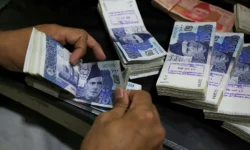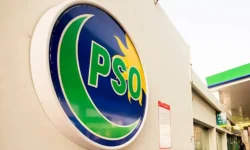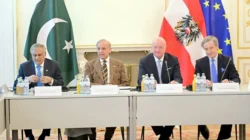ARMY SPEAKS THE HEART OF THE PEOPLE OF PAKISTAN

Hira Tahir
General Syed Asim Munir, Chief of Army Staff (COAS), presided over the 261st Corps
Commanders’ Conference (CCC), where discussions centered on security and the welfare of
the people of Pakistan, with a strong focus on national interest. The forum paid tribute to the
sacrifices made by Shuhadas, including officers, soldiers, and citizens, in ensuring peace and
stability in the country. The forum also reaffirmed Pakistan Army’s commitment to defending
the sovereignty and territorial integrity of Pakistan against direct and indirect threats. They
also discussed the prevailing geo-strategic environment, challenges to national security, and
the strategy in response to evolving threats.In addition to enhancing national defence
capabilities, the Pakistani military plays a crucial role in the country’s socio-economic progress
and well-being of its masses.In the year 2023 Pakistan Army has pledged its full support
to the government’s ambitious “Economic Revival Plan,” which aims to harness the
untapped potential of key sectors such as defense production, agriculture, livestock,
minerals, mining, information technology, and energy. This plan emphasizes both
indigenous development and investments from friendly nations. To expedite project
development, the establishment of the Special Investment Facilitation Council (SIFC) has
been initiated, serving as a central point of contact for potential investors and ensuring a
unified approach.
With a special focus on national development, the military has undertaken numerous
exemplary initiatives, The implementation of the “Green Pakistan Initiative” has played a
crucial role in ensuring food security and advancing agricultural practice. This initiative
is projected to attract substantial investments, estimated to reach 30-50 billion dollars over
the next four to five years, while also creating employment opportunities for
approximately 4 million individuals. Notably, successfully restored Marwat Canal in
Lakki Marwat, with assistance from the armed forces, benefiting not only 70% of the
local population but also 30% of the Bannu district by providing water to a catchment area
of 170,000. The completion of the Hydro Electric Power Station in Upper Dir marks a
significant milestone in Pakistan’s pursuit of energy sustainability, while efforts in Thar,
including the construction of a wells, have brought immense joy to the local community.
Additionally, the successful completion of the Murot Canal Project, holds the promise of
economic and agricultural advantages for the region. The Grass Root Incentivized Dairy
Development (GRIDD) project serves as a commendable effort to boost milk and meat
production, as well as improve the welfare of small farmers.
The Pakistan Armed Forces have also placed emphasis on developmental projects in
economically disadvantaged regions, exemplified by the successful afforestation
campaign in South Waziristan and Frontier Corps areas. In an effort to improve literacy
rates, the military leadership has implemented reforms that facilitate the establishment of
educational institutions, particularly in areas lacking adequate facilities and provision of
uniforms, books, and stationery for underprivileged students. Notable achievements include
the creation of the first APS school in Khyber, a Cadet College in Mohmand Agency, and
multiple Cadet Colleges in Balochistan, all of which provide students with access to high quality education. The military’s commitment to education extends to initiatives such as the
Wana Children Academy, which focuses on the education and development of orphaned
children, and the Army Public School in Miranshah, which has paved the way for numerous
graduates to serve in the Pakistani Armed Forces. Additionally, Cadet College Pano Aqil,
supported by the military, has become a center for standardized education and training,
offering a wide range of extracurricular activities. In South Waziristan, the establishment of the
Wana Institute of Technical Training Center and Al-Badar IT Center introduces local youth to
modern technology, further contributing to their skills and development.
The Pakistan Army has also been actively involved in ensuring access to education in
the war-hit districts of Khyber Pakhtunkhwa (KP). To this end, nine pilot projects have been
initiated in various locations, including Mohmand Tera, Hasan Khel, Dara Adam Khel, Karam,
Jani Khel, Tanak Srarogha, and Angore Adda. These projects have already benefited over
4,000 boys and girls, with classes being conducted at different centers. Additionally, the
Pakistan Army has revitalized 24 inactive schools through its program and provided training
to 250 adults. Notably, various development projects worth 162 billion rupees have been
launched in KP, resulting in 95% of the population affected by terrorism returning to
their homes. Furthermore, Pakistan Army and Frontier Corps (FC) have also introduced a
new program called Taleem: Tolo Da Para (Education for All), aimed at facilitating easy
access to education in the war-affected tribal areas.
In a concerted effort to prioritize the welfare of the public, both Frontier Corps (FC) and
military personnel have taken the initiative to organize free medical camps throughout the
country, with a particular focus on areas such as Multan, Sialkot, and Bahawalpur and remote
regions of Sindh, where a team of highly qualified army doctors conducted comprehensive
medical examinations for the general public. Furthermore, the establishment of basic health
centers in Muhmand and Wadi-e-Tira, strategically located for the convenience of the local
population, serves as a testament to the military’s unwavering commitment to ensuring access
to essential healthcare facilities.
Pakistan Army remains steadfast in its commitment to ensuring peace and prosperity
in Balochistan region with a series of initiatives aimed at driving progress and development in
the port city of Gwadar. Notable projects include empowering local fishermen with 500 fishing
nets, upgrading the fish auction hall, and introducing solarization measures in the fisheries
sector. Additionally, the construction of 12 shops will create employment opportunities for
unemployed fishermen. The Army is also providing free education to 200 children from fishing
families, promising a brighter future for the city’s youth. Healthcare in Gwadar will be
strengthened through the construction of nine basic health units and centers dedicated to
rehabilitating drug addicts, addressing critical health concerns. The city’s water supply will
witness enhancements through the construction of 13 RO water plants and the provision of
solar panels to 1270 households, ensuring improved access to clean water. Furthermore,
sports and recreation will receive a boost with the construction of two football grounds and a
state-of-the-art boxing arena.
The Pakistan Army has also made tremendous efforts to combat smuggling, money
laundering, power theft, hoarding of essential items, and other illegal economic activities and
remains committed to providing full support to relevant government institutions and law
enforcement agencies in order to effectively curb these crimes. These efforts are a testament
to the Army’s overarching mission of creating a positive and lasting impact on the lives of
citizens across the nation.





